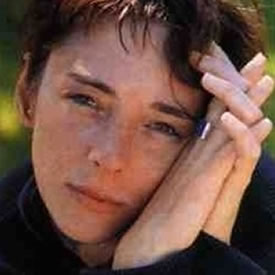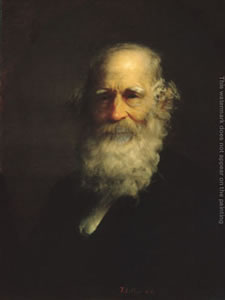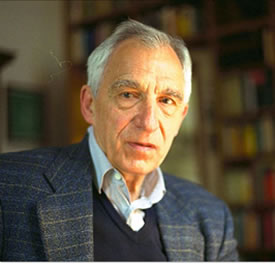De Amerikaanse schrijver, humorist en criticus Joe Queenan werd geboren op 3 november 1950 in Philadelphia, Pennsylvania. Zie ook mijn blog van 3 november 2006 en ook mijn blog van 3 november 2008 en ook mijn blog van 3 november 2009.
Uit: Balsamic Dreams: A Short but Self-Important History of the Baby Boomer Generation
“Throughout history, generations imbued with a messianic complex have inspired a wide range of powerful emotions. The Jacobins who decapitated Louis XVI inspired dread. The insurgents led by George Washington inspired admiration. The twentysomething barbarians who accompanied Genghis Khan on his pitiless campaigns through Central Asia and Eastern Europe inspired despair, the young Germans who put Hitler’s name in lights inspired horror, the fresh-faced Frenchmen and Frenchwomen who built the cathedrals of Chartres and Amiens and Beauvais inspired awe.
Baby Boomers fall into a somewhat different category. As convinced of their uniqueness as the Bolsheviks, as persuaded of their genius as the Victorians, as self-absorbed as the Romantics, as prosperous as the ancient Romans, the Baby Boomers, despite a very good start (the Freedom Riders, Woodstock, Four Dead in Ohio, driving Nixon from office, Jon Voigt in Midnight Cowboy), have never put many points on the historical scoreboard. Feared and admired in their youth, today they inspire little more than irritation. Not outright revulsion, not apoplectic fury, but simple, unadorned garden-variety irritation. With a bit of contempt thrown in on the side.
The single most damning, and obvious, criticism that can be leveled at Baby Boomers is, of course, that they promised they wouldn’t sell out and become fiercely materialistic like their parents, and then they did. They further complicated matters by mulishly spending their entire adult lives trying to persuade themselves and everybody else that they had not in fact sold out, that they had merely matured and grown wiser, thattheir values had undergone some sort of benign intellectual mutation. This only made things worse, because they had now compounded the sin of avarice with the sin of deceit. Besides, it was useless to deny their monstrous cupidity; banks keep records of this sort of thing.“

Joe Queenan (Philadelphia, 3 november 1950)
De Franse schrijfster Ann Scott (pseudoniem) werd geboren op 3 november 1965 in Boulogne-Billancourt. Zie ook mijn blog van 3 november 2008 en ook mijn blog van 3 november 2009.
Uit: A la folle jeunesse
“Le taxi filait sur les berges désertes. Il avait neigé dans la nuit, mais ce n’était pas un de ces 1er janvier radieux où en sortant on est ébloui par le blanc qui recouvre tout, et les rues sont arrêtées, immobiles, silencieuses, jusqu’à l’air qui semble purifié. C’était un jour grisâtre qui se levait, à 8 heures du matin, et des quelques flocons tombés dans la nuit, il ne restait qu’une couche de glace sur les toits des voitures garées. Derrière la vitre embuée se succédaient les bascôtés souillés de boue, les péniches amarrées et les eaux ternes de la Seine que le courant parsemait de crêtes d’écume. Çà et là, des silhouettes emmitouflées vidaient des seaux d’eau bouillante sur les ponts des péniches, soulevant de brusques nuées de vapeur comme des steaks jetés dans une poêle. Affalée en travers de la banquette, le manque de sommeil me donnait la nausée. La radio qui passait Hotel California me donnait envie de hurler, ou de pleurer, et dans les paroles je voyais ma tante. Je la voyais le matin de sa mort, avant que le moteur de sa 911 lâche sur Pacific Coast Highway et qu’on achète la Plymouth pour continuer à rouler. Je la voyais dans la cuisine, au petit déjeuner, en peignoir, une serviette enroulée autour des cheveux, en train de boire un whisky en même temps qu’elle tassait le coussin d’une chaise afin que je m’y asseye. Je voyais ses doigts crispés autour du verre pour ne pas le lâcher, un verre en cristal trop large, trop épais, trop lourd, et ses phalanges entre ses bagues qui devenaient blanches. Je voyais la fraction de seconde où le verre lui avait échappé, et ses jambes nues qui s’étaient contentées de se raidir au lieu de reculer pour ne pas être éclaboussées ou recevoir d’éclats. Je voyais ses orteils dans la flaque, le vernis impeccable, le verre qui s’était simplement cassé en deux, et je voyais ses yeux bleus : ils fixaient un glaçon qui avait glissé sur le carrelage jusqu’à la baie vitrée, mais ils auraient aussi bien pu fixer le type qui passait une épuisette à la surface de l’eau de la piscine, quand elle avait dit que regarder un glaçon fondre était comme voir quelqu’un sans substance s’évaporer.”

Ann Scott (Boulogne-Billancourt, 3 november 1965)
De Franse schrijver en kunstfilosoof André Malraux werd geboren op 3 november 1901 in Parijs. Zie ook mijn blog van 3 november 2007 en ook mijn blog van 3 november 2006 en ook mijn blog van 3 november 2008 en ook mijn blog van 3 november 2009.
Uit: La Voie Royale
“Donc, il y avait sans doute un monde d’atrocités au-delà de ces yeux arrachés, de cette castration qu’il venait de découvrir… Et la démence, comme la forêt à l’infini derrière cette orée… Mais il n’était pas encore fou : une exaltation tragique le bouleversait, une allégresse farouche. Il continuait à regarder vers la terre : à ses guêtres arrachées, à ses lacets de cuir tordus collait absurdement l’image ancienne d’un chef barbare prisonnier comme lui, plongé vivant dans la tonne aux vipères et mourant en hurlant son chant de guerre, les poings brandis comme des noeuds rompus. L’épouvante et la résolution s’accrochaient à sa peau. Il lança son pied sur le revolver qui parcourut un mètre en clochant, rebondissant de crosse en canon, comme un crapaud. Il repartit vers les Moïs. Claude, haletant, le tenait dans le rond des jumelles comme au bout d’une ligne de mire : les Moïs allaient-ils tirer ? Il tenta de les voir, d’un coup de jumelles ; mais sa vue ne s’accommoda pas aussitôt à la différence de distance et sans attendre il ramena les jumelles sur Perken qui avait repris exactement sa position de marche, le buste en avant : un homme sans bras, un dos incliné de tireur de bateaux sur des jambes raidies. Lorsqu’il s’était retourné, une seconde, Claude avait revu son visage, si vite qu’il n’en avait saisi que la bouche ouverte, mais il devinait la fixité du regard à la raideur du corps, aux épaules qui s’éloignaient pas à pas avec une force de machine. Le rond des jumelles supprimait tout, sauf cet homme. “

André Malraux (3 november 1901 – 23 november 1976)
De Nederlandse dichter en schrijver Jan Boerstoel werd geboren in Den Haag op 3 november 1944. Zie ook mijn blog van 3 november 2008 en ook mijn blog van 3 november 2009.
Hier in dit land
Hier in dit land van water en van wind
en wolken die tot aan de hemel reiken,
een pannenkoek van klei en zand en grind,
vol kleine mensen achter hoge dijken,
hier wordt als regel zuinig voortgeplant
en heet de favoriete hobby maaien,
de favoriete stand de middenstand,
wil heel wat onweer tóch nog overwaaien
en halen heel wat levens nooit de krant,
hier in dit land,
ons land.
Hier in dit land van water en van wind
en almaar nieuwe soorten autochtonen,
gezagsgetrouw en koninginsgezind
en ook weer blij om hier te mogen wonen,
mannen in alle kleuren zonverbrand
op ongebruikelijke zomerdagen
en vrouwen, die in religieus verband
soms rare hoedjes of een boerka dragen,
die zijn dan vaak wat zwaarder op de hand,
hier in dit land,
ons land.
Bevlogenheid is niet ons sterkste punt
en ook zijn hier geen bergen te bestijgen,
waar één ding wordt ons altijd weer gegund:
jenever om de hoogte van te krijgen
en daarna vanzelfsprekend pepermunt…
Hier in dit land van water en van wind,
waar wij het doorgaans best getroffen hebben,
maar waar al gauw het jammeren begint,
zodra de overvloed dreigt weg te ebben.
Dus gaat het met de taal hier navenant:
begrippen die het helemaal gaan maken
zijn knettergek en zweep en harde hand,
terwijl weer andere in onbruik raken,
zoals beschaafd, humaan en tolerant…
Hier in dit land,
ons land.

Jan Boerstoel (Den Haag, 3 november 1944)
De Duitse schrijver en essayist Dieter Wellershoff werd geboren op 3 november 1925 in Neuss. Zie ook mijn blog van 3 november 2007 en ook mijn blog van 3 november 2006 en ook mijn blog van 3 november 2008 en ook mijn blog van 3 november 2009.
Uit: Der Liebeswunsch
“Manchmal denke ich, daß ich nicht sie erklären muß, sondern mich, mein Interesse an ihr, das so spät, fast sechs Jahre nach ihrem Tod, wieder in mir erwacht ist. Doch vielleicht muß ich erst vom Vergessen sprechen, das gewaltsam als Abwendung und Trennung begann und dann allmählich in Beruhigung überging. Ich habe immer weniger, immer flüchtiger an sie gedacht und irgendwann dann nicht mehr. Wann das war, weiß ich nicht. Man vergißt auch noch das Vergessen, wenn man etwas vergißt. Es ist wie eine doppelte Wand oder wie etwas, das es in Wirklichkeit nicht gibt – eine doppelte Dunkelheit. Inzwischen weiß ich: Man kann nicht sicher sein. Sie war verschwunden in diesem doppelten Dunkel, bis ich sie plötzlich wiedersah. Sie erschien mir in jener bannenden Ausdrücklichkeit, mit der eine Schauspielerin im Lichtkegel eines Scheinwerfers, unbeirrt von den auf sie gerichteten Augen im verdunkelten Zuschauerraum, über die Bühne schreitet.
Wenige Schritte vor mir, bei einer Verkehrsampel, die gerade auf Rot schaltete, kreuzte sie inmitten anderer Fußgänger meinen Weg und verschwand in der Seitenstraße. Ruhig, ohne den Kopf zu wenden, ging sie an mir vorbei, in dem unangetasteten Reiz ihrer längst vergangenen Erscheinung Jahre vor ihrem Tod. Sie erschien mir in dem seltsamen Zwielicht einer nahen Ferne: unwirklich und selbstverständlich und, wie jene Schauspielerin, nicht anrufbar.
Es war eine andere, eine fremde Frau, in der ich sie wiedererkannte. Doch das wußte nur mein Verstand, der den Schrecken, der mich durchfuhr, mit kurzer Verzögerung beiseite schob. Sie war es nicht. Sie konnte es nicht sein. Es konnte nicht noch einmal beginnen. Erleichterung oder Enttäuschung – ich wußte nicht, was ich empfand.
Während die Frau im rechten Winkel zu meinem Weg sich entfernte – eine ganz andere Person, die nichts von den Phantasien ahnte, die ich ihr aufgebürdet hatte –, riß auch meine Verbindung zu der Umgebung, deren Mittelpunkt sie gewesen war. Ich fühlte mich wie im Inneren einer durchsichtigen Blase, an deren Außenhaut der Verkehr, die Menschen und die Schaufenster der Geschäfte schillerten – eine zerflossene farbige Illusion.“

Dieter Wellershoff (Neuss, 3 november 1925)
De Duitse schrijver, filmmaker en cabaretier Hanns Heinz Ewers werd geboren op 3 november 1871 in Düsseldorf. Zie ook mijn blog van 3 november 2008 en ook mijn blog van 3 november 2009.
La Guaira
Und diese wahnsinnstarke Sonne glüht.
Zwei schreiten wortlos zwischen Häusermassen
und trinken heissen Tod aus leeren Gassen,
wo keines Lebens leiser Atem blüht.
Da wacht der Tod, dass man ihm keines raube.
– Glutkrämpfe schütteln einen Hungerhund,
die Rippen fliegen, Schaum entquillt dem Mund –
den trinkt die Sonne gierig aus dem Staube.
Zwei schreiten wortlos auf verkohltem Grase.
Die Würmer pochen tief im Ahornbaum
und schläfrig hockt der Geier auf dem Aase.
– Das alles, weiss ich, ist ein schwerer Traum,
den andere von uns träumen. Eine Phrase,
so leer wie Hundes Geiferschaum.
Drei Grafen Spee
Weit vom Osten her durch die unendliche See
Tragen drei gute Schiffe drei Grafen Spee.
Der Vater auf der “Scharnhorst”, er ist Admiral.
(Herz wie aus Erz. Augen wie blanker Stahl.)
Auf der “Gneisenau” ein Sohn. Leutnant. Des Alten Blut.
Weißt schon — was Pflicht ist. Weißt noch — was Übermut!
Und auf der “Nürnberg” der dritte, der jüngste Spee;
Jubel, lachender Leichtsinn, Fähnrich zur See.
Der sang lachend ein Liedchen und taufte die Flotte,
Dem Ahnherrn zu Ehren, dem Briten zum Spotte,
Trank den letzten Wein, zerbrach den blanken Kristall –
Nannte sie “Deutsche Trutznachtigall”!
Von Japan her, weit über die große See
Kam mit deutschen Schiffen Admiral Graf Spee.
Schwamm zum Süden hinab längs der Salpeterwüste,
Fand den Engländer unten an Chiles Küste.
Faßte in fest. Hob die Sense und schnitt die Garben,
Pflückte den ersten Sieg zur See für die schwarzweiß-roten Farben.
Bei den Falklandinseln in wildem Wogenschwall
Sang ihr letztes Lied die “Deutche Trutznachtigall”.
Sang es gut und voll aus manchen Kanonen,
Mußte doch herab zum Grunde, wo die Kraken wohnen.
Wenn John Bull angreift, weiß er, sieben zu eins, seine Odds zu nützen,
Mehr in der Zahl, größer in Schiffen, viel stärker in den Geschützen.
Und es sank die “Nürnberg”. Sank die “Scharnhorst”. Sank “ Gneisenau” –
—Da weint zu Kiel heiße Tränen manche deutsche Seemannsfrau.
Bei den Falklandinseln, tief im Grunde der See
Liegen drei deutsche Schiffe. Liegen drei Grafen Spee.

Hanns Heinz Ewers (3 november 1871 – 12 juni 1943)
Ewers als lid van het Berlijnse Corps Normannia
De Australische dichteres en schrijfster Oodgeroo Noonuccal (eig. Kathleen Jean Mary Ruska) werd geboren op 3 november 1920 in Minjerribah (Stradbroke Island) in Moreton Bay. Zie ook mijn blog van 3 november 2008 en ook mijn blog van 3 november 2009.
Ballad Of The Totems
My father was Noonuccal man and kept old tribal way,
His totem was the Carpet Snake, whom none must ever slay;
But mother was of Peewee clan, and loudly she expressed
The daring view that carpet snakes were nothing but a pest.
Now one lived inside with us in full immunity,
For no one dared to interfere with father’s stern decree:
A mighty fellow ten feet long, and as we lay in bed
We kids could watch him round a beam not far above our head.
Only the dog was scared of him, we’d hear its whines and growls,
But mother fiercely hated him because he took her fowls.
You should have heard her diatribes that flowed in angry torrents,
With words you’d never see in print, except in D.H. Lawrence.
“I kill that robber,” she would scream, fierce as a spotted cat;
“You see that bulge inside of him? My speckly hen make that!”
But father’s loud and strict command made even mother quake;
I think he’d sooner kill a man than kill a carpet snake.
That reptile was a greedy guts, and as each bulge digested
He’d come down on the hunt at night, as appetite suggested.
We heard his stealthy slithering sound across the earthen floor,
While the dog gave a startled yelp and bolted out the door.
Then over in the chicken-yard hysterical fowls gave tongue,
Loud frantic squawks accompanied by the barking of the mung,
Until at last the racket passed, and then to solve the riddle,
Next morning he was back up there with a new bulge in his middle.
When father died we wailed and cried, our grief was deep and sore,
And strange to say from that sad day the snake was seen no more.
The wise old men explained to us: “It was his tribal brother,
And that is why it done a guy” – but some looked hard at mother.
She seemed to have a secret smile, her eyes were smug and wary,
She looked about as innocent as the cat that ate the pet canary.
We never knew, but anyhow (to end this tragic rhyme)
I think we all had snake for tea one day about that time.

Oodgeroo Noonuccal (3 November 1920—16 September 1993)
De Amerikaanse dichter, journalist en jurist William Cullen Bryant werd geboren op 3 november 1794 in Cummington, Massachusetts. Zie ook mijn blog van 3 november 2008 en ook mijn blog van 3 november 2009.
Autumn Woods
Ere, in the northern gale,
The summer tresses of the trees are gone,
The woods of Autumn, all around our vale,
Have put their glory on.
The mountains that infold,
In their wide sweep, the coloured landscape round,
Seem groups of giant kings, in purple and gold,
That guard the enchanted ground.
I roam the woods that crown
The upland, where the mingled splendours glow,
Where the gay company of trees look down
On the green fields below.
My steps are not alone
In these bright walks; the sweet south-west, at play,
Flies, rustling, where the painted leaves are strown
Along the winding way.
And far in heaven, the while,
The sun, that sends that gale to wander here,
Pours out on the fair earth his quiet smile,–
The sweetest of the year.
Where now the solemn shade,
Verdure and gloom where many branches meet;
So grateful, when the noon of summer made
The valleys sick with heat?
Let in through all the trees
Come the strange rays; the forest depths are bright?
Their sunny-coloured foliage, in the breeze,
Twinkles, like beams of light.
The rivulet, late unseen,
Where bickering through the shrubs its waters run,
Shines with the image of its golden screen,
And glimmerings of the sun.
But ‘neath yon crimson tree,
Lover to listening maid might breathe his flame,
Nor mark, within its roseate canopy,
Her blush of maiden shame.
Oh, Autumn! why so soon
Depart the hues that make thy forests glad;
Thy gentle wind and thy fair sunny noon,
And leave thee wild and sad!
Ah! ’twere a lot too blessed
For ever in thy coloured shades to stray;
Amid the kisses of the soft south-west
To rove and dream for aye;
And leave the vain low strife
That makes men mad–the tug for wealth and power,
The passions and the cares that wither life,
And waste its little hour.

William Cullen Bryant (3 november 1794 – 12 juni 1878)


























